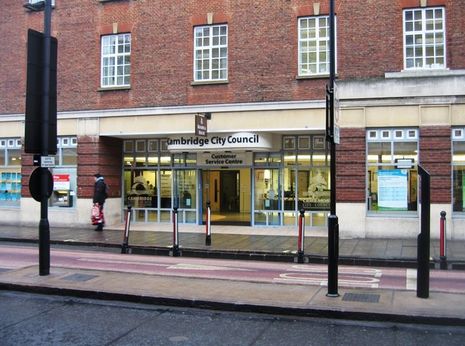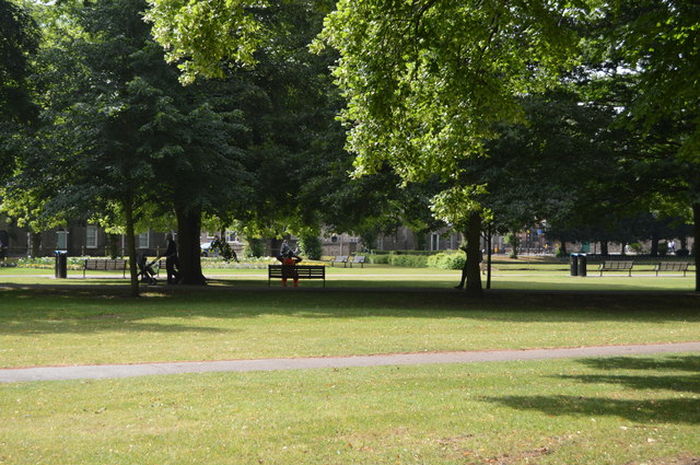Cambridge City Council approves budget to facilitate green and inclusive recovery measures
The budget focuses on tackling homelessness and poverty, as well as furthering the city’s efforts to tackle climate change

A new budget for 2021-22 has been approved by Cambridge City Council, which outlines the goals of taking action on climate change and the environment as well as tackling poverty and inequality.
Councillors have been tasked with planning the budget that will carry out these tasks whilst also dealing with the financial strain of helping the city recover from the pandemic.
The Council’s budget explains how allocating funds will be prioritised in three core areas, the first of which is helping vulnerable people. In this area, increased financial support will further prevent homelessness and rough sleeping, invest in services for children, young people and families, and fund groups that assist the most vulnerable residents. The City Council will also collaborate with the Community Food Hub “to deliver unused and donated food to voluntary groups”.
Another area receiving Council attention in the budget is Cambridge’s response to environmental issues. Funds will be prioritised for efforts such as creating an additional Climate Change Officer, installing extra electrical vehicle charging points. The Council also plans to invest in carbon reduction measures at swimming pools, which have been identified as the Council’s most significant energy users.
The final area targeted by the 2021-22 budget is delivering quality services and strengthening the Council. With this goal in mind, the Council will establish an Economic Recovery Officer who will work with local business to enable a robust response to the pandemic.
In tandem with the 2021-22 budget, the Housing Revenue Account Budget has also been approved, highlighting plans to build another 1,000 new council homes by 2030 and invest in the Council’s existing housing stock, ensuring that they are modern, safe, and secure.
The budget also introduces a 2.47% increase in Council Tax for 2021-22, with the Council Tax raising 9.8% of the Council’s annual income, which totals £91.8 million. The City Council’s share of the Council Tax collected in Cambridgeshire will be 10.76%, with Cambridgeshire County Council receiving 72.59%, Cambridgeshire Police and Crime Comissioner 12.84%, and the Cambridgeshire Fire Authority 3.81%.
The announcement assures that those on low incomes and vulnerable can seek assistance in paying Council Tax bills through the Council Tax reduction scheme for 2021-22.
In a Council statement, Cllr Mike Davey, Executive Councillor for Finance and Resources, said: “Our balanced budget for 2021-22 will protect and improve services, especially for those experiencing hardship in the city in the wake of the pandemic.
He further explains the financial constraints of drafting a budget during the pandemic: “At the time the budget was published, the total estimated cost of the pandemic to the Council in 2020/21 was £16.6m, and this had only partially been mitigated by government grants totalling £8.3m.”
Cllr Davey continues: “Despite this, our sound financial management over many years has ensured we can still deliver a budget to deliver the services our residents expect, tackle the housing shortage, reduce inequality, lead the city on addressing climate change, and ensure the council’s financial security for many years to come.”
The new budget falls in line with the green measures that the Council announced in January, aiming to reduce emissions further and increase biodiversity. Outlined in the budget are measures to invest in energy efficiency and generation, which was one of the core areas outlined in the January report as councillors aimed to create possibilities for large scale investments in solar panels and energy projects.
Also mentioned in the budget report was the recent issue of revoking funding for out-of-hours cattle support, which may have threatened the presence of grazing cows in the city centre. With the grazing of commons recognised as a significant contributor to Cambridge’s biodiversity, the Council has emphasised that they remain committed to issuing grazing licences annually.
 News / Hundreds of Cambridge academics demand vote on fate of vet course20 February 2026
News / Hundreds of Cambridge academics demand vote on fate of vet course20 February 2026 News / Judge Business School advisor resigns over Epstein and Andrew links18 February 2026
News / Judge Business School advisor resigns over Epstein and Andrew links18 February 2026 News / University Council rescinds University Centre membership20 February 2026
News / University Council rescinds University Centre membership20 February 2026 News / Petition demands University reverse decision on vegan menu20 February 2026
News / Petition demands University reverse decision on vegan menu20 February 2026 News / Caius students fail to pass Pride flag proposal20 February 2026
News / Caius students fail to pass Pride flag proposal20 February 2026










